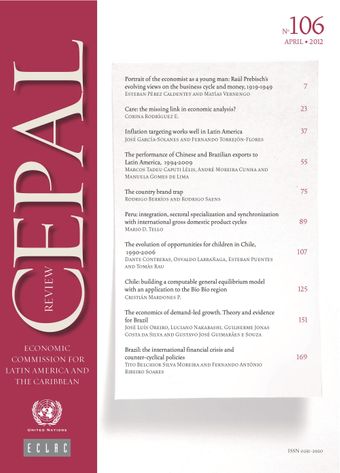-
Brazil: The international financial crisis and counter-cyclical policies
- Source: CEPAL Review, Volume 2012, Issue 106, May 2012, p. 169 - 181
- Spanish
-
- 05 May 2012
- Previous Article
- Table of Contents
- Next Article
Abstract
This article evaluates the effectiveness of the counter-cyclical measures adopted by the Brazilian government to mitigate the effects of the subprime mortgage crisis, by analysing the repercussions of monetary, fiscal and credit policies on several of the main macroeconomic aggregates. The empirical analysis showed that expansionary credit policy was decisive for increasing family consumption and aggregate output during the crisis. While expansionary monetary policy also helped increase aggregate production during that period, investment expenditure did not respond to counter-cyclical policies.
© United Nations





